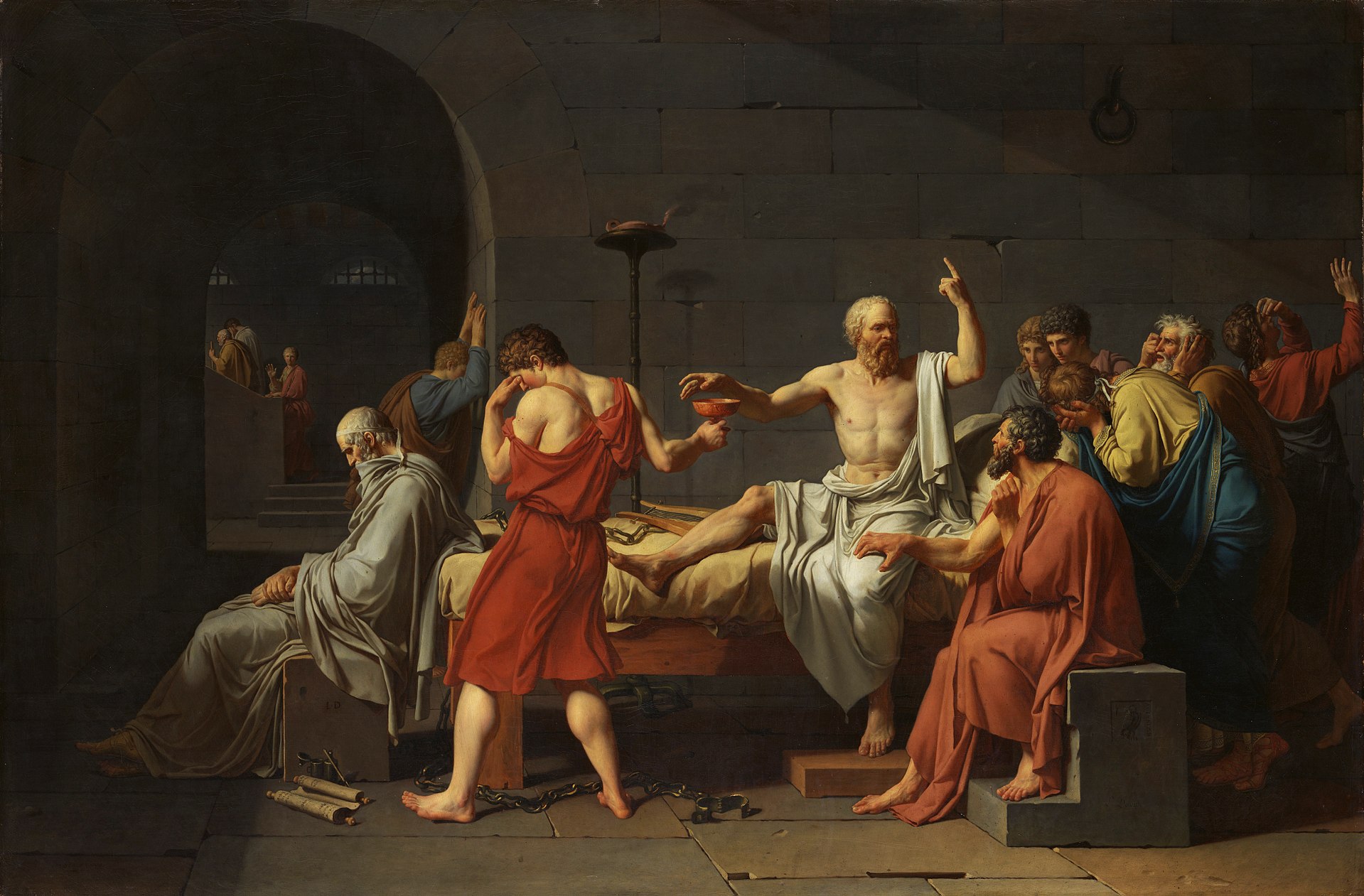
Socrates was a classical Greek philosopher who lived in Athens in the 5th century BC. He is widely considered to be one of the founders of Western philosophy and is known for his unique method of inquiry, known as the Socratic method, in which he used a series of questions and answers to stimulate critical thinking and illuminate ideas. He is also known for his emphasis on the examination of one’s own beliefs and the pursuit of wisdom. Socrates’ ideas and teachings continue to be studied and debated by philosophers to this day. Although Socrates himself did not leave any written records, his ideas and teachings have been passed down through the writings of his students, such as Plato and Xenophon. In these writings he’s often depicted as a wise and virtuous man who is committed to the pursuit of truth and the good life. Socrates is also considered a key figure of ancient Greek culture and history, as he was an active citizen of Athens and played a significant role in the intellectual and cultural life of the city. He was tried and executed by the Athenian government in 399 BCE on charges of impiety and corrupting the youth.
Why was he a ‘superstar,’ philosopher?
It’s all down to his unique method of inquiry, known as the Socratic method, in which he used a series of questions and answers to stimulate critical thinking and illuminate ideas. This method, along with his emphasis on the examination of one’s own beliefs and the pursuit of wisdom, had a profound influence on Western philosophy. Additionally, Socrates is known for his moral teachings and for his emphasis on virtue and the good life. His ideas and teachings continue to be studied and debated by philosophers to this day.
Socrates believed that truth is objective and can be found. He believed that knowledge is necessary for a good life, and that the pursuit of wisdom is the highest good. Socrates believed that the truth is not something that can be simply asserted or believed, but it must be discovered through examination and critical thinking. He believed that the truth is always there, but it is hidden and can only be revealed by asking the right questions and by examining one’s own beliefs. He believed that individuals can come to a deeper understanding of the truth through the the use of deductive tools such as the ‘Socratic Method.’ For Socrates truth is something that can be attained by anyone who takes the time to question their own beliefs and the beliefs of others, through the process of dialogue and critical thinking. Socrates’ idea of truth and knowledge could be seen as a kind of realism, where knowledge of the world is possible and that there is an objective reality independent of our minds.
The Socratic method in action.
Socrates would ask a series of questions to stimulate critical thinking and illuminate ideas to his opponent.
Socrates: “What is justice?”
Person: “Justice is when people are treated fairly and obey the laws.”
Socrates: “Can you give me an example of something that is just?”
Person: “Paying taxes is just because it is the law and it helps to support the government.”
Socrates: “But what if a law is unjust? Would it still be just to obey it?”
Person: “No, in that case it would not be just to obey it.”
Socrates: “So, justice is not simply obeying the laws, but obeying just laws. And what makes a law just or unjust?”
Through a series of questions, Socrates leads the person to examine their own beliefs and come to a deeper understanding of the concept of justice.
The Socratic method can also be used to explore the nature of virtue, knowledge, or other concepts. The goal of Socratic method is to guide others to discover truth by examining their own beliefs and understanding.
Socrates is considered one of the founders of Western philosophy and his contributions to philosophical thought and human history are numerous. In addition to the Socratic method illustrated above, some of his key contributions include:
- The emphasis on self-knowledge: Socrates believed that the key to living a good life was to examine one’s own beliefs and understand one’s own ignorance. He believed that by understanding one’s own limitations, one could begin to acquire true knowledge.
- The belief in objective truth: Socrates believed that truth is objective and can be found. He believed that knowledge is necessary for a good life, and that the pursuit of wisdom is the highest good.
- The importance of virtue: Socrates believed that virtue is necessary for the good life, and that virtues such as courage, justice, and wisdom are essential for living well.
- The role of the philosopher: Socrates is considered one of the first philosophers in Western tradition, and his emphasis on questioning, self-knowledge, and virtue set the stage for the development of philosophy as a discipline.
- The impact of his death: His trial and execution by the Athenian government in 399 BCE is considered a significant event in the history of Western philosophy and human rights. His death has been seen as a symbol of the tension between the pursuit of truth and the will of the state, and has been used to illustrate the dangers of speaking truth to power.
The Euthyphro.
In this dialogue, Socrates meets with a religious expert, Euthyphro, who is on his way to court to prosecute his own father for murder. Socrates uses the Socratic method to question Euthyphro’s understanding of piety and holiness.
Socrates asks Euthyphro: “What is piety, Euthyphro? What is that quality in actions, or in the agents of actions, which you call pious, or holy?”
Euthyphro answers: “What is dear to the gods is pious and holy, and what is not dear to them is impious.”
Socrates then asks a series of follow-up questions, such as “Is what is pious loved by the gods because it is pious, or is it pious because it is loved by the gods?” Through this dialogue, Socrates leads Euthyphro to realize that he does not truly understand the nature of piety, despite claiming to be an expert on the topic.
Socrates does not offer any definite answers, but instead leads Euthyphro to question his own understanding of piety and holiness, and to ultimately arrive at a deeper understanding of the concept.
This dialogue illustrates the Socratic method in action as it illustrates how Socrates uses questions and dialogue to stimulate critical thinking and lead the interlocutor to a deeper understanding of the topic under discussion.
Euthyphro ultimately becomes frustrated with Socrates’ questioning and leaves the conversation without arriving at a clear understanding of piety. This is a common outcome of the Socratic method, as it can be challenging for individuals to face the limitations of their own knowledge and beliefs. Socrates himself never claimed to have all the answers, but instead believed that the process of questioning and examining one’s own beliefs was more important than arriving at a specific conclusion. The dialogue illustrates the tension that can arise when one is confronted with the limitations of their own understanding and beliefs and highlights the importance of open-mindedness, humility and a willingness to question one’s own understanding of the world.

